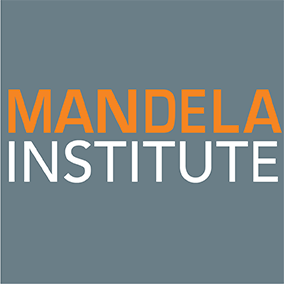International Nuclear Law
Application Form
Complete Online Application Form at
/zahrah/display/external/public/163/AabSAeQlpQ#section-intro
Start Date
15 July 2024
Apply By
21 June 2024
Cost
R16,400.00
Duration & Format
This is a semester-long course where participants attend evening lectures from 17:30 to 19:00 once a week during the period 15 July to 22 October 2024. Exams will take place on the 30 October 2024 to 26 November 2024.
Overview
This course aims to raise awareness of the diversity of potential applications of nuclear science and technology to promote an effective legal system for nuclear energy as part of sustainable energy. The legal and governance framework for nuclear law is poorly understood and therefore the need to build capacity and skills on nuclear law and awareness of the underlying technology. This includes:
- Building critical skills and knowledge of the basics of nuclear technology, science, and applications;
- Enabling an understanding of the international legal and governance frameworks for nuclear safety, security, safeguards, and liability;
- Raise awareness of international and national nuclear law, including its relationship and interactions with other branches of law; and
- Nurturing national and regional competencies in creatively applying concepts, rules and principles to find solutions to nuclear law challenges through case studies.
Course Outcomes
At the end of the course, the participant should be able to:
- Explain nuclear technology, science, and their diverse applications;
- Articulate the international legal and governance framework for nuclear technology and science applications;
- Explain what nuclear law is, and identify the four main branches of nuclear law – nuclear safety, nuclear security, safeguards and non-proliferation and civil liability for nuclear damage – including awareness and comprehension of the scope, applicability and salient provisions of the relevant international legal instruments, both legally binding and legally non-binding, in each of these areas;
- Assess the extent to which national nuclear law, gives effect to obligations under the international legal instruments;
- Examine how nuclear law relates to, and interacts with, other branches of the law;
- Apply concepts, rules and principles to find solutions to nuclear law challenges through case studies; and
- Analyse nuclear law, policies and regulations and advise on their implementation.
Course Content
The course consists of the following modules:
Part One: Nuclear Science, Technology, Radiation and Safety (40% of the course content)
- Defining nuclear energy and radiation.
- Applications of nuclear energy including nuclear power generation.
- Basic principles of radiation protection: Ionising radiation, health risks and international protection standards.
- Uses of ionising radiation in medicine, industry and agriculture.
- Nuclear installations: Safety, standards and nuclear waste management (Industry and Technical perspectives).
- Emergency preparedness, disaster management and response.
Part Two: Nuclear Law and Regulation (60% of the course content)
- Introduction to Nuclear Law: Definition, Objective, Principles and Sources
- The international regulatory and governance framework for nuclear: the International Atomic Energy Agency, as well as inter alia the United Nations and its specialised agencies
- Regional and national institutions and governance of nuclear energy in Southern Africa.
- Nuclear Law and other relevant areas of Law: Energy, Climate Change, and Environmental.
- International Legal Framework for Nuclear Safety
- International Legal Framework for Nuclear Security
- International Legal Framework for Safeguards
- Liability, insurance and compensation regimes (International and Domestic).
Target Audience
Legal practitioners and advisors, economic regulators, experts in corporations involved with nuclear technology, policy makers, public interest organisations, and professionals interested in nuclear technology applications.
Application Process
While a Bachelors Degree in Law or Commerce will be preferred, the course is open to anyone with a tertiary education. Applicants with relevant work experience may also be admitted in exceptional circumstances.
Applicants without a legal background may be required to complete a bridging course in law, namely the Introduction to Law for Non- Lawyers course offered by the Mandela Institute.
You will be required to submit a copy of your Bachelors Degree, academic record as well as a copy of your identity document or passport.
A detailed Curriculum Vitae will be required if your application is based on work experience.
Kindly note that all foreign qualifications must be submitted with a SAQA Evaluation Letter.
Additional Information
One of the following certificates can be obtained:
- Certificate of Competence: To obtain a certificate of competence, students are required to attend and participate in 75% of the lectures and to complete the assessments as required in the course.
This postgraduate certificate course is accredited by the university in accordance with its statutory mandate. It does not lead to a qualification registered on the National Qualifications Framework.
Enquiries
Mahlatse Masemola Tel No: +27 11 717 8438; Email mahlatse.masemola@wits.ac.za
Ursula Dillner-Dangor Tel No: +27 11 717 8435; Email: ursula.dillner-dangor@wits.ac.za
Website www.wits.ac.za/mandelainstitute/short-courses/

